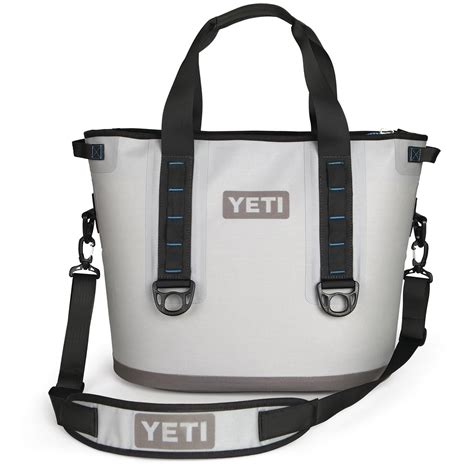hermes group podmioty zależne | Hermes financial group management
$186.00
In stock
The Hermes Group, a name synonymous with logistics excellence and global retail value chain optimization, isn't a monolithic entity. Rather, it's a dynamic ecosystem comprised of numerous "podmioty zależne" – subsidiary companies – each contributing a specialized piece to the overall puzzle. This article provides an in-depth overview of these Hermes Group subsidiaries, detailing their individual roles, interconnectedness, and their collective impact on the global retail landscape. We will explore the comprehensive logistical services, fulfilment solutions, and other critical functions provided by these entities, while also touching upon key aspects of Hermes Group management, governance, and financial leadership.
The Hermes Group Ecosystem: A Network of Specialized Expertise
The Hermes Group operates across a diverse range of segments within the retail value chain. Its subsidiaries offer everything from first-mile collection and international transportation to warehousing, last-mile delivery, and comprehensive e-commerce fulfilment. This end-to-end approach allows the Hermes Group to provide a holistic service offering, catering to the evolving needs of retailers of all sizes.
While a comprehensive list of every single subsidiary and its granular specialization might be commercially sensitive, we can broadly categorize them based on their core functions:
1. Logistics and Transportation Subsidiaries:
This constitutes the core of the Hermes Group's operations. These subsidiaries are responsible for the physical movement of goods across the globe. They manage vast networks of transportation infrastructure, including trucks, planes, and ships, ensuring efficient and timely delivery. Specific functions include:
* First-Mile Collection: Gathering goods from manufacturers, suppliers, or retailers.
* International Transportation: Moving goods between countries via air, sea, and land.
* Linehaul Transportation: Transporting goods between major hubs and distribution centers.
* Hub and Sortation Operations: Managing large-scale sorting facilities to efficiently route packages.
* Last-Mile Delivery: The crucial final step of delivering packages to the end consumer.
These subsidiaries often operate under different brand names depending on the geographic region. For example, Hermes Germany focuses on the German market, while other entities might cater to specific European countries or even global routes. The key is the seamless integration of these regional operations to create a truly global logistics network.
2. Fulfilment and Warehousing Subsidiaries:
As e-commerce continues to boom, the demand for robust fulfilment and warehousing solutions has exploded. The Hermes Group has responded by developing a network of subsidiaries specializing in these areas. Their services typically include:
* Warehousing and Storage: Providing secure and efficient storage for goods.
* Inventory Management: Optimizing inventory levels to meet demand and minimize costs.
* Order Processing: Efficiently processing orders received through various channels.
* Pick and Pack: Accurately picking the correct items from inventory and packaging them for shipment.
* Returns Management: Handling returned goods efficiently and effectively.
* Value-Added Services: Offering additional services such as labeling, kitting, and customization.
These fulfilment subsidiaries often leverage advanced technology, such as warehouse management systems (WMS) and automated picking systems, to improve efficiency and accuracy. They also work closely with the logistics and transportation subsidiaries to ensure seamless integration between warehousing and delivery.
3. Technology and Software Development Subsidiaries:
The Hermes Group understands that technology is crucial for staying ahead in the competitive logistics landscape. They have invested heavily in developing cutting-edge technology solutions to optimize their operations and provide enhanced services to their clients. These technology-focused subsidiaries typically:
* Develop and maintain proprietary software platforms: This includes systems for order management, transportation management, warehouse management, and customer relationship management (CRM).hermes group podmioty zależne
* Implement data analytics and business intelligence solutions: Analyzing vast amounts of data to identify trends, optimize routes, and improve overall efficiency.
* Develop mobile apps and web portals: Providing customers with real-time tracking information and easy access to services.
* Explore and implement emerging technologies: This includes areas such as artificial intelligence (AI), machine learning (ML), and the Internet of Things (IoT).
These technology subsidiaries are critical for driving innovation and ensuring that the Hermes Group remains at the forefront of the logistics industry. They often work in close collaboration with the operational subsidiaries to identify areas where technology can improve efficiency, reduce costs, and enhance customer satisfaction.
4. Consulting and Advisory Services Subsidiaries:
Beyond the core logistics and fulfilment services, the Hermes Group also offers consulting and advisory services to help retailers optimize their supply chains and e-commerce operations. These subsidiaries typically:
* Provide supply chain assessments and optimization strategies: Analyzing a retailer's existing supply chain and identifying areas for improvement.
* Develop e-commerce strategies and implementation plans: Helping retailers launch or expand their online presence.
* Offer training and education programs: Providing retailers with the knowledge and skills they need to succeed in the e-commerce market.
* Provide market research and competitive analysis: Helping retailers understand the market landscape and identify opportunities.
These consulting subsidiaries leverage the Hermes Group's extensive experience and expertise to provide retailers with valuable insights and guidance. They help retailers make informed decisions about their supply chain and e-commerce strategies, ultimately leading to improved efficiency, reduced costs, and increased profitability.
5. Financial Services Subsidiaries:
While primarily focused on logistics and retail solutions, the Hermes Group may also have financial service subsidiaries to support its operations and those of its clients. These could include:
Additional information
| Dimensions | 6.5 × 4.2 × 3.4 in |
|---|









